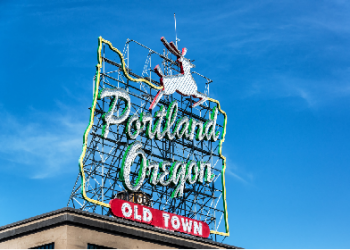
Portland Nursing Home Abuse Lawyer Explains Whether a Pressure Sore is a Sign of Nursing Home Abuse
You have just been notified that your loved one in a nursing home has a pressure sore, pressure ulcer, bed sore, or some other type of ulcer or sore. This has never happened before. One of the first questions is whether this pressure sore is a sign of nursing home abuse or neglect in an Oregon nursing home. This is a good question because pressure sores do not just randomly develop. They can also be devastating and result in serious personal injuries, extreme pain and suffering, or even wrongful death due to sepsis or infection. Victims who have a loved one diagnosed with a pressure sore need to ask our Portland nursing home abuse lawyer whether their loved one has been the victim of Oregon nursing home abuse and neglect.
This is because a pressure sore can absolutely be due to nursing home malpractice, abuse, or neglect. It is very uncommon for a pressure sore to be caused in a nursing home or hospital where a resident is receiving the proper care and attention that he or she deserves. This means that it is common for pressure sore cases to be due to Oregon nursing home abuse, neglect, or malpractice.
What is a Pressure Sore?
As the name implies, a pressure sore is damage to bodily tissue due to prolonged exposure to pressure, repeated friction, or continued abrasion and force against a part of the body. The most common causes of pressure sores are the springs of a bed, chair, or wheelchair, the friction of a seat or bed cover, leather on a wheelchair, or metal posts supporting a mattress, bed, chair, or wheelchair. Normally these surfaces do not pose a problem. However, when an individual is exposed to them for many endless hours over multiple days, it can result in a breakdown of the tissue.
This breakdown is what causes the pressure sore and the severity of the pressure sore. The damage includes the following:
Stage 1: Damage to the outer skin causing pain, redness, swelling, burning, and related injury
Stage 2: Damage to the inner layer resulting in bleeding, oozing, swelling, blisters, and similar damage. An infection is likely.
Stage 3: Damage into the next layer, which is the fatty layer. The risk of infection is much higher and symptoms include bleeding, oozing, necrotic tissue (death of tissue), and sometimes a bad odor. This is incredibly painful.
Stage 4: Extreme pain and high risk of infection or sepsis. This is when the pressure sore has extended into the muscle and bone layer which is even more severe and damaging. This is typically life threatening. It can cause catastrophic damage to tissue, including to muscle, tendons, ligaments, bones, nerves, blood vessels, cartilage, and other structures. Victims at stage 4 need immediate medical attention.
If a Pressure Sore was Diagnosed on a Loved One, Call Our Portland Nursing Home Abuse Lawyer Today
If you or a loved one have been seriously injured or killed as a result of nursing home abuse or neglect contact the Oregon Nursing Home Abuse Lawyers at Kuhlman Law at our number below or fill out the intake form. We offer a free initial case evaluation and handle cases on a contingency fee which means that you pay no money unless we recover.
Our law firm handles cases throughout the state including Bend and Portland Oregon, Redmond, Central Oregon, Sisters, Madras, Multnomah County, Deschutes County, Salem, Eugene, Corvallis, Lane County, Medford, Gresham, La Grande, Albany, Medford, Beaverton, Umatilla, Pendleton, Cottage Grove, Florence, Oregon City, Springfield, Keizer, Grants Pass, McMinnville, Tualatin, West Linn, Forest Grove, Wilsonville, Newberg, Roseburg, Lake Oswego, Klamath Falls, Happy Valley, Tigard, Ashland, Milwakie, Coos Bay, The Dalles, St. Helens, Sherwood, Central Point, Canby, Troutdale, Hermiston, Silverton, Hood River, Newport, Prineville, Astoria, Tillamook, Lincoln City, Hillsboro, and Vancouver, Washington.
We also have an office in Minneapolis, Minnesota and take Nursing Home Abuse cases throughout the Twin Cities, including St. Paul, Hennepin County, Ramsey County, Dakota County, Washington County, Anoka County, Scott County, Blaine, Stillwater, and Saint Paul Minnesota.
Please act quickly, there is a limited time (Statute of Limitations) in which you can bring a claim under the law.



